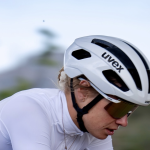Asics Corp. has released the company’s 2017 Sustainability Report. The document summarizes the company’s sustainability performance for fiscal year 2017 and outlines progress towards the company’s medium- and long-term sustainability targets.
Highlights of 2017 Sustainability Report
- Developed sustainable products for international sports events and inline collection
- Launched pilot programs globally on a circular economic model
- Became the first Japanese brand to enter a system partnership with bluesign
- Installed a 1 MW solar panel array at the distribution center in Byhalia, Mississippi
- Published a full list of direct Tier 1 suppliers for the first time
- Helped a strategic partner in Cambodia to achieve Better Work Stage II status
- Launched major employee wellbeing programs in Europe and Japan
- Gave over $774,000 to communities in financial contributions and donations in kind
- Set ambitious targets for 2030 as part of our commitment to Science Based Targets
2017 marked a major milestone for Asics with the launch of I Move Me, a global movement reimagining the “sound mind in a sound body” philosophy which has guided the company for nearly 70 years.
“As the world becomes ever more aware of the impact of physical inactivity and mental illness, I Move Me reaffirms Asics’ decades-long commitment to supporting physical and emotional wellbeing,” said Motoi Oyama, chairman and CEO of Asics Corporation. “It also provides a fresh perspective on our broader sustainability approach.”
In keeping with the brand message, the sustainability framework was simplified into two main sections: I Move Me Smarter for Planet and I Move Me Stronger for People.
Key Topics for Planet
Asics views scientific research on sustainable materials and manufacturing processes as the foundation of its sustainability efforts. In 2017, Asics applied its findings to develop a new training apparel collection, which uses about 50 percent less water in the dyeing process than traditional methods. Worn by the Japan team for Olympic and Paralympic Winter Games Pyeong Chang 2018, the series extensively utilized recycled and bio-based materials, and included the first sports shoes to earn a Japanese Eco Mark Certificate.
Asics demonstrated its commitment to a circular economy by initiating partnerships to find new uses for used apparel. In Japan, Asics set up a pilot program with recycled products manufacturer Jeplan to collect used clothing and shoes for recycling into new polyester resins and fuel. Other sustainability efforts focused on cross-sector collaboration, with Asics becoming the first Japanese brand to form a system partnership with bluesign. Through the bluesign system, Asics collaborates with other brands, manufacturers, converters and chemical suppliers on chemical management in the supply chain to improve sustainability in textile and footwear production.
Additionally, thanks to a number of ongoing energy efficiency projects, Asics reduced its CO2 emissions in 2017 by 17.5 percent from the baseline year. Significant progress was achieved through a partnership with EnterSolar to install a one-megawatt rooftop solar panel array at a distribution center in Byhalia, MS. The largest private system in the state, it will cover 25 percent of the site’s energy needs over the next 25-30 years and reduce carbon emissions by nearly 800 tons per year.
Key Topics for People
Asics took further steps in 2017 to empower employees in the company and supply chain, beginning with a major advance in supply chain transparency by publishing a full list of direct Tier 1 suppliers for the first time. Through its existing partnership with ILO Better Work, Asics launched factory-level activities in southeast Asia that helped a supplier in Cambodia become one of the first to achieve Better Work Stage II status, which requires the factory to demonstrate rigorous compliance as well as effective social dialogue, management systems and learning.
Asics also kicked off two major employee wellbeing programs in Europe and Japan to support achieving a sound mind in a sound body. In Japan, Asics focused on the country’s work culture, with its reputation for long hours and extreme dedication. While valuing the commitment of its employees, Asics introduced a workstyle reform program that aims to promote a healthy work-life balance and foster physical, mental and social wellbeing among staff and their families.
Fiscal year 2017 saw Asics give more than $774,000 in financial assistance and donations in kind (including footwear, apparel and sports equipment) to local communities. Asics Europe gave €20,000 to its longtime charity partner Right To Play, a global organization that uses sport to educate and empower children facing adversity, as part of a fundraising campaign which raised an additional €80,000 from consumers and employees across Europe.
New Targets for 2030
Asics set ambitious new targets for 2030, including reducing the carbon footprint of its own operations by 33 percent, in line with the Science Based Targets initiative, and cutting supply chain carbon emissions by 55 percent of 2015 levels per product manufactured. These targets underpin a mid-term carbon strategy designed to propel the company’s CO2 reduction efforts going forward.
The 2017 Sustainability Report and 2017 Highlights can be found here.















